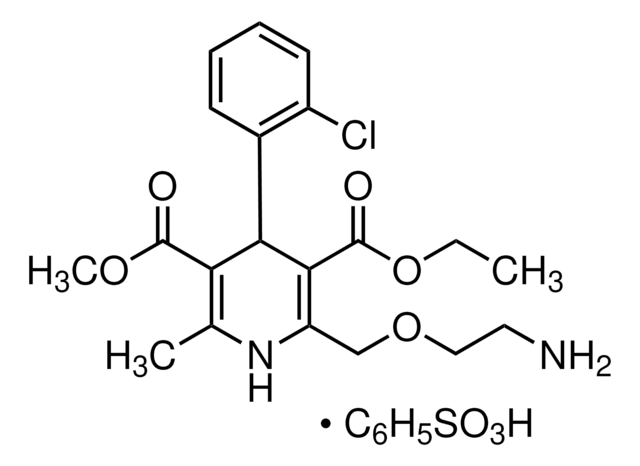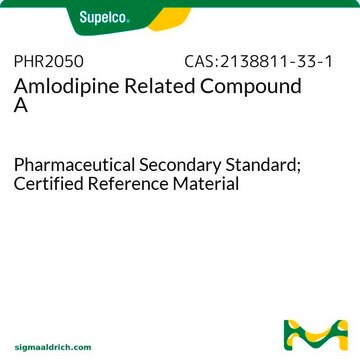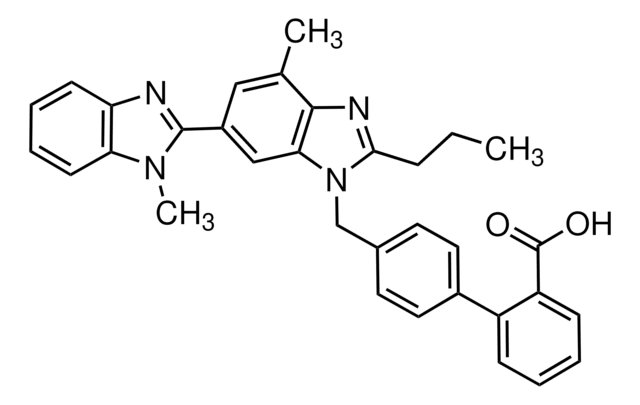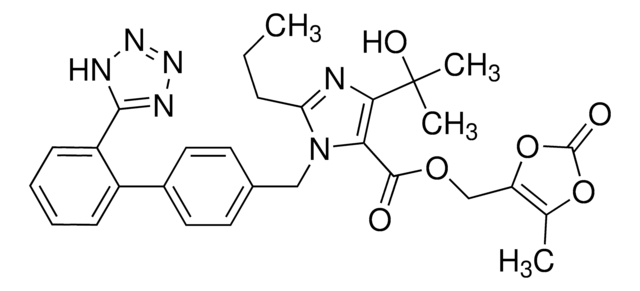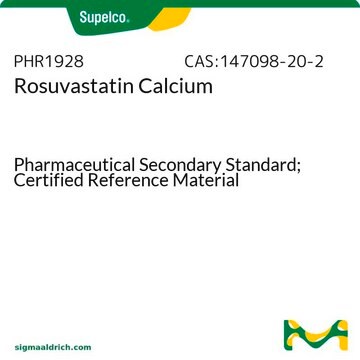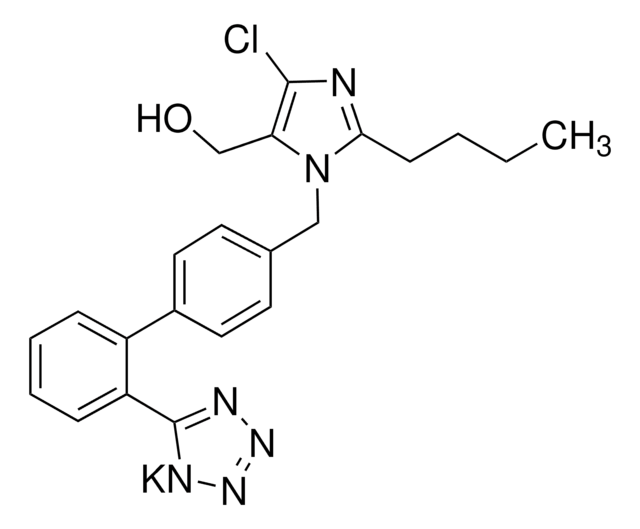PHR1185
Amlodipine besylate
Pharmaceutical Secondary Standard; Certified Reference Material
Synonym(s):
(4R, S)-3-Ethyl-5-methyl 2-(2-amino-ethoxy-methyl)-4-(2-chlorophenyl)-1,4-dihydroxy-6-methyl pyridine-3,5-dicarboxylate monobenzene sulphonate, 2-[(2-Aminoethoxy)-methyl]-4-(2-chlorophenyl)-1,4-dihydro-6-methyl-3,5- pyridinedicarboxylic acid 3-ethyl 5-methyl ester benzene sulfonate, Norvasc
About This Item
Recommended Products
grade
certified reference material
pharmaceutical secondary standard
Quality Level
agency
traceable to Ph. Eur. Y0000049
traceable to USP 1029501
API family
amlodipine
CofA
current certificate can be downloaded
technique(s)
HPLC: suitable
gas chromatography (GC): suitable
application(s)
pharmaceutical (small molecule)
format
neat
storage temp.
2-8°C
SMILES string
OS(=O)(=O)c1ccccc1.CCOC(=O)C2=C(COCCN)NC(C)=C(C2c3ccccc3Cl)C(=O)OC
InChI
1S/C20H25ClN2O5.C6H6O3S/c1-4-28-20(25)18-15(11-27-10-9-22)23-12(2)16(19(24)26-3)17(18)13-7-5-6-8-14(13)21;7-10(8,9)6-4-2-1-3-5-6/h5-8,17,23H,4,9-11,22H2,1-3H3;1-5H,(H,7,8,9)
InChI key
ZPBWCRDSRKPIDG-UHFFFAOYSA-N
Gene Information
human ... CACNA1C(775) , CACNA1D(776) , CACNA1F(778) , CACNA1S(779)
Looking for similar products? Visit Product Comparison Guide
General description
Application
Biochem/physiol Actions
Analysis Note
Other Notes
Footnote
Recommended products
Related product
signalword
Warning
hcodes
Hazard Classifications
Acute Tox. 4 Oral
Storage Class
11 - Combustible Solids
wgk_germany
WGK 3
Choose from one of the most recent versions:
Already Own This Product?
Find documentation for the products that you have recently purchased in the Document Library.
Customers Also Viewed
Our team of scientists has experience in all areas of research including Life Science, Material Science, Chemical Synthesis, Chromatography, Analytical and many others.
Contact Technical Service